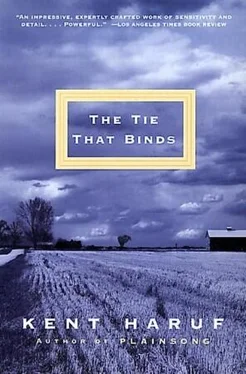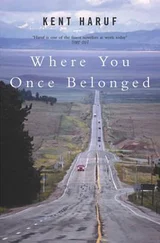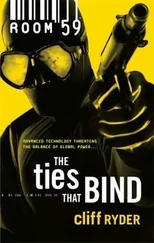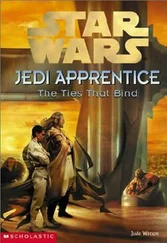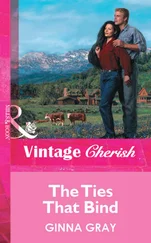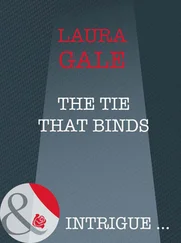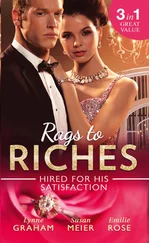AFTERWARDS they must have talked a little, still quietly, in a sad whisper now. Edith must have said, “What’s going to happen to us, John? What am I going to do now?”
“Why, we’re going to get married.”
“But I don’t know that.”
“We’re going to get married. We’ll have a fine time.”
“I don’t know that at all.”
“I’m asking you, though. Right now. Is that what you’re waiting for? I’m too comfortable and easy to get up on my knees, but you know I want us to be married.”
“That’s not what I mean. I mean how can I?”
“Why hell, girl, you just say yes now, and a little later you say ‘I do.’ What else is there?”
Edith must have sat up then, moving up off his arm where she had been lying while he made circles in her brown hair with his fingers. She must have begun to put her blouse and skirt on again.
“I mean,” she said, “there’s Lyman.”
“Well, damn Lyman,” my dad said. “He’s old enough. What is he — twenty-four, twenty-five? He’s old enough to manage by hisself, ain’t he?”
“Lyman was twenty-three,” Edith said, “June sixth. But it’s not a matter of age, you know it isn’t. It’s him, it’s the way he is, and it’s me too. I’ve always had to be there for him — against Daddy.”
“All right, yes, I know that. I’ve seen it all often enough. But Jesus, Edith, you’d only be a half mile apart even so.”
“It’s not a matter of miles either.”
“Well, what then? Hell.”
“It’s Daddy too. Don’t you see that? Think about him, the way he is. His hands.”
“I don’t want to think about him. He’s a dried up son of a bitch. Even before his hands, he was.”
“That’s not fair.”
“It’s a fact, Edith. He’s no good to anybody, let alone to hisself.”
“But that doesn’t seem to matter,” she said. “Does it? I can’t help that. All I can help is. . I can help about mother.”
“But for godsake, Edith. Your mother is dead.”
“I know that. That’s what I mean. When mother died I had to take things up into my own hands. And you know it doesn’t matter if I wanted to or not: sometimes now I don’t even know what it was I might have wanted once. I can’t recall. It’s been too long; it will be eight years in August since mother died. But anyway, these things and these people here are mine now. I’ve taken them up. That’s all there is. And besides, what would Lyman do?”
So what was my dad going to say to any of that? He was lying there in sandhill grass, watching her while she talked and while the light shone pale on her fine face, and I suppose he must have known that he couldn’t win any fight against the memory of any frail little woman, even if that woman was just skinny and tiny and homesick and even if she had been dead for close to eight years. But perhaps he still had reason to hope — I suppose he did— so perhaps he changed targets and aimed instead at Edith’s obligation to Lyman, because maybe he still thought he could at least win a fight against a twenty-three-year-old shuffling, shambling brother. With humor then my dad must have said something like:
“All right, hell then. If he has to, Lyman can come live with us. I’ll cut him another hole in the outhouse.”
“What? Don’t be silly.”
“He can have his own Sears, Roebuck catalog too. We won’t bother it none. We won’t even notice if he uses all the pages except the ones with corsets and women’s socks on them. He can spend all the time he wants to out there— we won’t care.”
“You are good for me,” Edith said.
“Why sure. Old Lyman will be as happy as a dead sow in clover.”
Edith felt about in her hair to see if she had all of the grass combed out. “Give me another kiss,” she said. “And stop all this talking about outhouses and dead sows.”
THEY WENT HOME THEN, out of the sandhills where, for a while, they had been alone in the sage and the blue light, then north on the highway to the corner and east almost a mile, before they got to the Goodnoughs’, to find Lyman. They didn’t find him, though, not right away. They had to stop the car and look for him along the roadside in the tall grass, and they didn’t find him until they turned the headlights of the car on again. Even then they didn’t find him immediately. He was lying on his side, rolled into himself like a kid, asleep with spit dribbled onto his chin. He was a good fifteen feet off the road. Edith brushed him off.
“Are you awake now?” she said.
“Where’s Pa?”
“In the house. Come on. Can you get in the car?”
My dad drove them into the yard and squeezed Edith’s hand before she got out. Then he drove the half mile home, and Edith and Lyman walked into the house together. Roy was waiting for them in the kitchen. He was sitting at the kitchen table in his work pants and long underwear, with his raw hands and one good finger resting on the white enameled wood in front of him. Some things weren’t any simpler then than they are now.
“Get upstairs,” he told Lyman.
Lyman looked at Edith. He was fully awake now and aware, but he went upstairs anyway. The barn door had just banged shut again for him.
“You’re done with that,” Roy said to Edith. “That’s enough of Roscoe.”
Edith stood on the other side of the table, waiting, watching her father feel his little finger over the bad nubs of his right hand. His finger looked like a claw raking dead meat.
“I seen him stop the car,” Roy said. “I seen the lights on the road go off and come on again. But that’s done with.”
“I’m twenty-five,” Edith said.
“That don’t mean a diddle.”
“John’s thirty-two.”
“That don’t mean a goddamn, either. He’s a half-breed bastard, and you’re done with him.”
“He’s not either.”
“He is if I say he is, goddamn it. And you’re his whore. Now get to bed. You must be all wore out after tonight.”
“Shut up, Daddy. You don’t know what you’re saying.”
Roy stood up then; the chair banged down behind him onto the wooden floor. He reached across the table at her with his finger, but she stepped back.
“You don’t tell me to shut up,” he yelled. “I’m your father. I’ll say any goddamn thing I please. I told you to go to bed. Now get.”
“I will go to bed,” Edith said. “But I won’t listen to you say that.”
“This is my house. I built it. I’ll say anything I want in these rooms. Do you understand me?”
“It’s my house too. And Lyman’s. And it was mother’s before she died.”
“I wish she could see you now. She’d hate the damn sight of you.”
“No, she wouldn’t,” Edith said. “She would not.”
“By God, don’t tell me, you goddamn—”
But Edith walked past him then — he was insane, wild-eyed, stump waving — and went into the living room and up the stairs to the bedroom. He was still yelling at her: “You’re done with him, you hear me? Goddamn sow to a Roscoe, you’re done now. You’re through. You whore. You hear me?”
THE NEXT DAY Roy used more than just his voice. In the afternoon while Edith was snapping beans in the kitchen and Lyman was mowing hay in the field, Roy Goodnough kicked the chopping block over with his boot and pushed it rolling with the heels of his hands across the yard into the barn. There he righted it again under a crossbeam in the center alley of the barn. The chopping block was a sawed-off stump of an elm tree, with deep ax marks and dark dried blood on it where the slack heads of chickens had been chopped off. Over the crossbeam above him Roy looped a hemp rope and tied a full-handled ax to the rope so that the ax would fall and cut deep into the block.
Читать дальше
